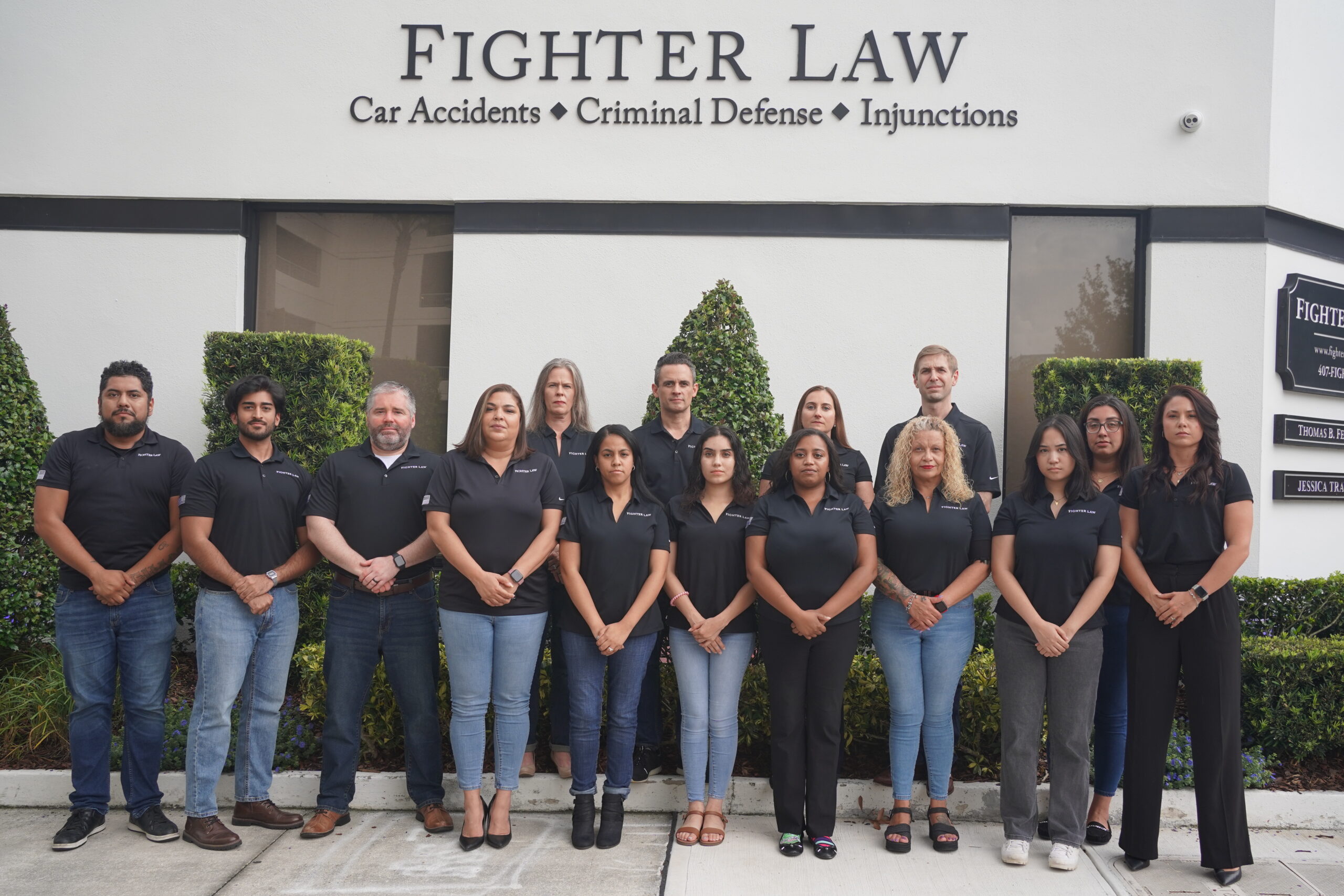How to Get Early Termination of Probation in Florida
A Step-by-Step Guide to Terminate Probation Early in a Criminal Case in Florida
Probation sucks. It can be a restrictive and challenging period for anyone in Florida. Even if you are convicted, you may still be eligible to file for early termination of probation. Understanding how to terminate probation early can provide a significant relief and a fresh start. This guide will walk you through the steps, legal requirements, and best practices to achieve early termination of probation in Florida.
What is Probation in Florida?
Probation is a court-ordered period of supervision in which an offender must comply with certain conditions instead of serving time in prison. These conditions can include regular meetings with a probation officer, community service, employment requirements, drug testing, and more.
Eligibility for Early Termination of Probation
Not everyone on probation is eligible for early termination. The court will consider several factors before granting a request. To improve your chances, you should:
1. Complete at least half of your probation period: Courts generally expect you to have completed at least half of your probation term before considering early termination.
2. Fulfill all probation conditions: This includes paying all fines, completing community service, and attending required counseling or rehabilitation programs.
3. Maintain a clean record: Any new arrests or violations of probation terms can hinder your request for early termination.
Legal Requirements for Early Termination
In Florida, the legal framework for early termination of probation is outlined in Florida Statutes Section 948.05. Here’s what you need to know:
1. Petition the Court: You or your attorney must file a motion for early termination with the court that sentenced you to probation.
2. Notice to the Prosecutor: The State Attorney’s Office must be notified of your motion and given an opportunity to respond.
3. Court Hearing: A hearing will be scheduled where you (or your attorney) will present your case for early termination.
Steps to Terminate Probation Early
1. Consult with an Experienced Attorney: An experienced criminal defense attorney can evaluate your case, ensure you meet all eligibility criteria, and help you file the motion correctly.
2. Gather Supporting Documents: This includes proof of completed community service, payment receipts for fines, and any certificates from completed programs or courses.
3. File the Motion: Your attorney will draft and file a motion for early termination with the court, outlining your compliance with all probation terms.
4. Prepare for the Hearing: Your attorney will help you prepare to present your case to the judge. This may include demonstrating your rehabilitation and reasons for requesting early termination.
5. Attend the Hearing: During the hearing, your attorney will argue on your behalf. Be prepared to answer any questions the judge may have about your compliance and conduct during probation.
Factors the Court Considers
The court will evaluate several factors when deciding whether to grant early termination of probation, including:
1. Compliance with Probation Terms: Strict adherence to all conditions of probation is crucial.
2. Nature of the Offense: Less severe offenses may be more favorably considered.
3. Rehabilitation and Conduct: Evidence of rehabilitation, such as steady employment, community involvement, and completion of required programs, will strengthen your case.
4. Victim’s Input: If there was a victim in your case, the court may consider their opinion. If you know they don’t object, get that in writing (and notarized, if possible). Another option would be for them to tell the State in writing that they do not object.
5. Probation Officer’s Recommendation: A positive recommendation from your probation officer can significantly influence the court’s decision.
Common Reasons for Denial
Understanding why a request might be denied can help you avoid common pitfalls. Some reasons include:
1. Incomplete Probation Terms: Failing to meet all the conditions of your probation.
2. New Criminal Activity: Any new arrests or charges can lead to denial.
3. Negative Behavior: Poor behavior or a lack of evidence showing rehabilitation efforts.
Frequently Asked Questions
Can I terminate probation early if I still owe fines or restitution?
It is possible, but it can be challenging. Courts prefer that all financial obligations are satisfied before considering early termination.
What if my probation officer does not support my request?
While a supportive probation officer can bolster your case, it is not an absolute requirement. Your attorney can argue your case based on other factors demonstrating your rehabilitation and compliance.
How long does the early termination process take?
The process can vary, but it typically takes several weeks to a few months from filing the motion to receiving a decision.
Do I need an attorney to request early termination of probation?
While it is not legally required, having an experienced attorney can significantly increase your chances of success. They understand the legal nuances and can effectively advocate on your behalf.
Case Studies
Case Study 1: John’s Success Story
John was placed on probation for a non-violent drug offense. He completed over half of his probation term, fulfilled all his conditions, and maintained steady employment. With the help of his attorney, John gathered all necessary documents, filed the motion, and successfully argued his case in court. The judge granted early termination, allowing John to move forward with his life.
Case Study 2: Sarah’s Journey
Sarah was on probation for a DUI offense. She completed all required programs, paid her fines, and demonstrated excellent conduct throughout her probation. Despite a neutral recommendation from her probation officer, Sarah’s attorney presented a strong case highlighting her rehabilitation efforts. The court granted her request for early termination, ending her probation two years early.
Tips for Increasing Your Chances of Early Termination
1. Stay Out of Trouble: Avoid any criminal activity or association with individuals who may negatively influence you.
2. Document Your Progress: Keep detailed records of your compliance with probation terms, including proof of payments, completion certificates, and letters of recommendation.
3. Be Proactive: Engage in community service or additional rehabilitation programs beyond what is required. This demonstrates your commitment to turning your life around.
4. Communicate with Your Probation Officer: Maintain a positive and cooperative relationship with your probation officer. Their support can be pivotal.
Conclusion
Terminating probation early in Florida is possible but requires diligent effort, adherence to all probation conditions, and often, the expertise of a skilled attorney. By understanding the legal requirements, preparing thoroughly, and presenting a strong case, you can increase your chances of gaining early termination and reclaiming your freedom.
For personalized assistance and to enhance your chances of success, contact our experienced criminal defense attorneys today. We are dedicated to helping you navigate the legal system and achieve the best possible outcome for your case.
free case evaluation
Fill out the form below for an free evaluation of your case.




Criminal Defense
- Assault and Battery Lawyer
- Burglary, Robbery and Carjacking
- Child Abuse and Child Neglect Lawyer
- Civil Asset Forfeiture Attorney
- Counties We Serve
- Domestic Violence
- Domestic Violence Injunctions Lawyer in Orlando, Florida
- Domestic Violence Lawyer
- Driving While License Suspended
- Drug Crimes and Drug Possession
- Florida Contempt Defense Lawyer
- Florida DUI Attorney
- Grand Theft (Larceny)
- How to Defend Against and Fight Federal Crime Accusations
- How to Get Early Termination of Probation in Florida
- Murder and Manslaughter
- No Valid Driver’s License
- Orlando Injunction Attorney
- Orlando Marijuana Possession Lawyer
- Orlando Restraining Order Lawyer
- Orlando Sex Offender Registration Lawyer
- Orlando Shoplifting Defense Lawyer | FIGHTER LAW
- Petit Theft Lawyer
- Possession of Drug Paraphernalia
- Probation Violation Lawyer
- Reckless Driving
- Record Sealing and Expunging in Florida
- Resisting a Law Enforcement Officer
- Sex Crimes Defense Lawyer
- Trespass Lawyer in Orlando
- Weapons Offenses
- Your Trusted DUI Lawyers in Florida

Practice Areas
Learn more about our services in Criminal Defense, Personal Injury, and Injunctions.

We Fight for Outstanding Case Results
We are driven to get you results. Review the outcomes on recent cases we've handled.


